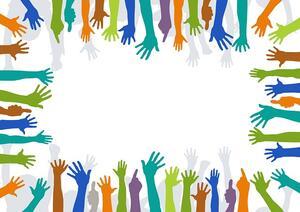Social Entrepreneurship: When the Political Becomes Personal
Raised in an activist household, I learned early that feminist consciousness-raising groups used the phrase “the personal is political” to signal that the experiences women had been taught to minimize as anecdotal and unimportant (If I’m unhappy, it’s either because I did something wrong or because I’m being silly and illogical) were actually part of larger patterns, social problems that required wide-scale change. The idea galvanized people to see beyond their individual problems and put their energies into a larger cause.
But recently I realized that it works the other way, too. There are so many terrible problems in the world that cry out for action: climate change, health care, human rights, education, peace. Even when you feel called to do something, how do you decide where to start? Where do you find the strength, day after day, to mend the world’s brokenness? It can’t be for some vague abstraction. To ignite your passion and determination, the political must become personal.
The Jewish Women’s Archive and the Jewish Women’s Foundation of New York are joining together to honor JWFNY’s fourteen Isha Koach honorees for this year. Each of these social entrepreneurs were shaped by experiences where abstract social or environmental problems suddenly became very concrete. For Laura Stachel, it was watching obstetricians trying to perform C-sections during blackouts and realizing how many women and children were dying due to a simple lack of reliable light. She created We Care Solar to bring solar-powered lights and equipment to medical facilities throughout Africa. For Karen Sokal-Gutierrez, it was seeing children in the developing world who were malnourished not because they lacked food, but because their families suddenly had access to Western junk food but had no education in nutrition or dental care. Her Global Children’s Oral Health and Nutrition Project now teaches children from Ecuador to Nepal to use toothbrushes and eat more balanced meals. And, shipwrecked on Lake Tanganyika in Africa, Amy Lehman forged a personal connection to the local villagers and resolved to build a floating medical center to serve the communities surrounding the lake.
Each of these women have shown incredible creativity, compassion, determination, and courage in their efforts to repair the world, but their work is fueled by its roots in their unique passions and skills, their close relationships with the people they work with. Trying to save the whole world is an impossible task, but by making the political personal, each of these women has found the strength to make a different corner of the world a whole lot better.







